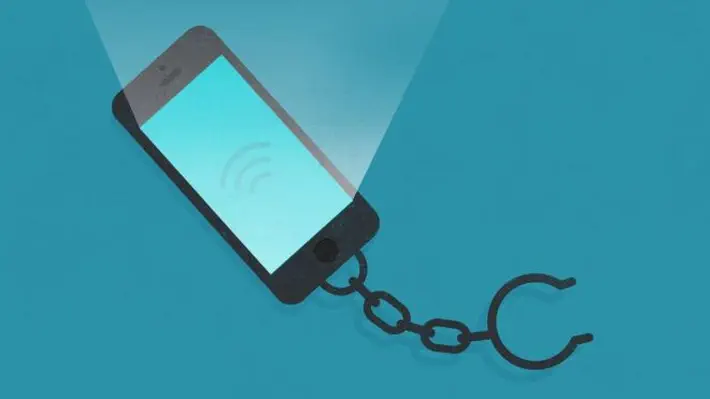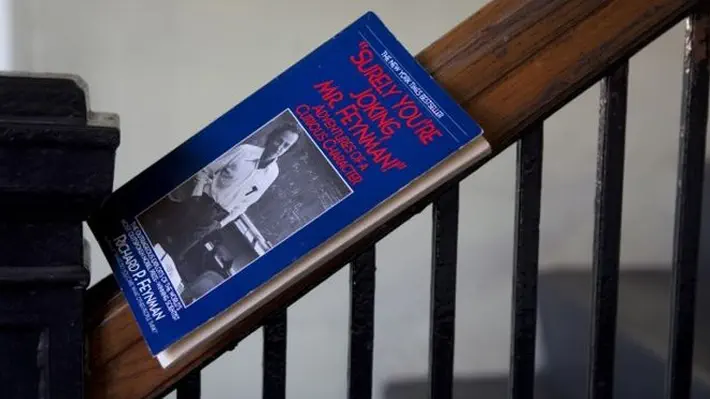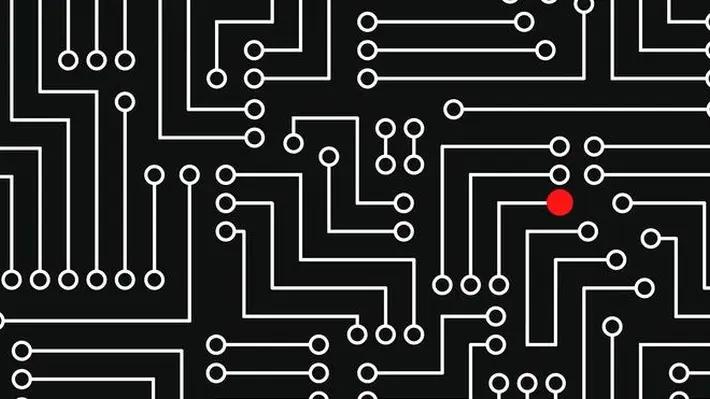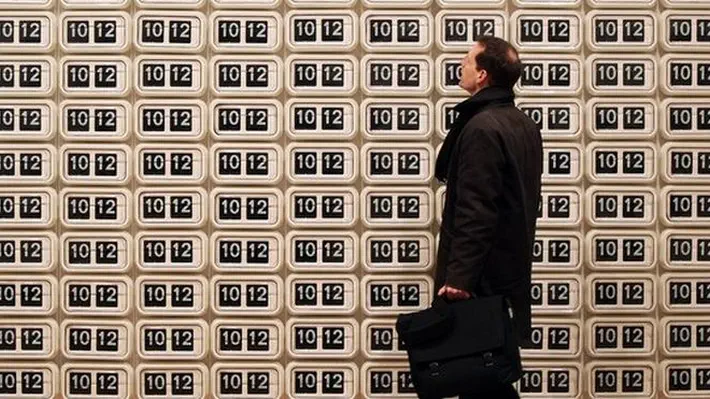 Wired
WiredThe 'Future Book' Is Here, but It's Not What We Expected
The Future Book was meant to be interactive, moving, alive. Its pages were supposed to be lush with whirling doodads, responsive, hands-on. The old paperback Zork choose-your-own-adventures were just the start. The Future Book would change depending on where you were, how you were feeling. It would incorporate your very environment into its story—the name of the coffee shop you were sitting at, your best friend’s birthday. It would be sly, maybe a little creepy. Definitely programmable. Ulysses would extend indefinitely in any direction you wanted to explore; just tap and some unique, mega-mind-blowing sui generis path of Joycean machine-learned words would wend itself out before your very eyes.
 wired
wiredLoopholes and the 'Anti-Realism' of the Quantum World
The theoretical physicist John Wheeler once used the phrase “great smoky dragon” to describe a particle of light going from a source to a photon counter. “The mouth of the dragon is sharp, where it bites the counter. The tail of the dragon is sharp, where the photon starts,” Wheeler wrote. The photon, in other words, has definite reality at the beginning and end. But its state in the middle—the dragon’s body—is nebulous. “What the dragon does or looks like in between we have no right to speak.”
 Wired
WiredMovies of Cold War Bomb Tests Hold Nuclear Secrets
One doesn’t just set off a nuclear weapon. So nuclear physicists are dissecting old bomb test footage to uncover the weapons' secrets.
 Wired
WiredNicotine and the Chemistry of Murder
The 1850 murder of Gustave Fougnies in Belgium is not famous because of the cleverness of his killers. Not at all. They - his sister and brother-in-law - practically set off signal flares announcing their parts in a suspicious death.
 WIRED
WIREDHow to Use Your Cat to Hack Your Neighbor’s Wi-Fi
Late last month, a Siamese cat named Coco went wandering in his suburban Washington, DC neighborhood. He spent three hours exploring nearby backyards.…
 WIRED
WIREDYou’re Probably Not Rich Enough to Opt Out of the Internet
Can we opt out of the Internet? Refusing was once for the olds. then it was countercultural; now its impossible.
 WIRED
WIREDThese Are the Greatest Geek Books of All Time, Readers Say
We revealed our ultimate reading list with 9 Essential Geek Books You Must Read Right Now. Wired.com readers fire back, submitting some awesome literary picks…
 WIRED
WIREDIn Search of the Living, Purring, Singing Heart of the Online Cat-Industrial Complex
A cat wearing a short tie plays music on a cat-shaped keyboard (Pancake Meowsic Video, 185,459 views).
 Wired
WiredIn India, high-pressure exams are creating a student suicide crisis
From across India, thousands of students travel to the northern city of Kota to receive private coaching in the hopes of being accepted into one of the country's top technical colleges. And for some, the pressure to succeed is overwhelming
 Wired
WiredThe Way the World Ends: Not with a Bang But a Paperclip
Paperclips, a new game from designer Frank Lantz, starts simply. The top left of the screen gets a bit of text, probably in Times New Roman, and a couple of clickable buttons: Make a paperclip. You click, and a counter turns over. One. // The game ends—big, significant spoiler here—with the destruction of the universe.
 WIRED
WIREDLet's Limit the Effect of Software Patents
Since We Can't Eliminate Them... Patents threaten every software developer, and the patent wars we have long feared have broken out.
 Wired
WiredThis ‘Demonically Clever’ Backdoor Hides In a Tiny Slice of a Computer Chip
Security flaws in software can be tough to find. Purposefully planted ones—hidden backdoors created by spies or saboteurs—are often even stealthier. Now imagine a backdoor planted not in an application, or deep in an operating system, but even deeper, in the hardware of the processor that runs a computer. And now imagine that silicon backdoor is invisible not only to the computer’s software, but even to the chip’s designer, who has no idea that it was added by the chip’s manufacturer, likely in some farflung Chinese factory. And that it’s a single component hidden among hundreds of millions or billions. And that each one of those components is less than a thousandth of the width of a human hair.
 Wired
WiredThese Physicists Watched a Clock Tick for 14 Years Straight
To be clear, Patla’s group hasn’t definitively proven that the laws of physics are unchanging across all time and space. All they can say is that in the last 14 years, the laws of physics have not changed in our neck of the universe, according to the best tools that human engineering can provide. Still, they can now say this with five times more certainty than they could a decade ago.
 WIRED
WIRED'The Deuce' Isn't About Sex, It's About Capitalism
HBO's 1970s drama views the pitfalls of free enterprise through the eyes of sex workers.
 WIRED
WIREDRavens have paranoid, abstract thoughts about other minds
Add this to logic puzzles, human speech repetition and nonvocal signals as things ravens can do...
 WIRED
WIREDFantastically Wrong: The Murderous, Sometimes Sexy History of the Mermaid
Hans Christian Andersen’s 'The Little Mermaid' is a heartwarming tale of a mermaid falling in love, battling evil to be with her love, and living happily ever after as a human. Just kidding. That’s the Disney version. In Andersen’s, the young mermaid has her tongue cut out, gets burned hard by the prince when he chooses another woman, and eventually dissolves into sea foam instead of saving her own life by ritualistically stabbing said prince through the heart and bathing in his blood. Seriously.






